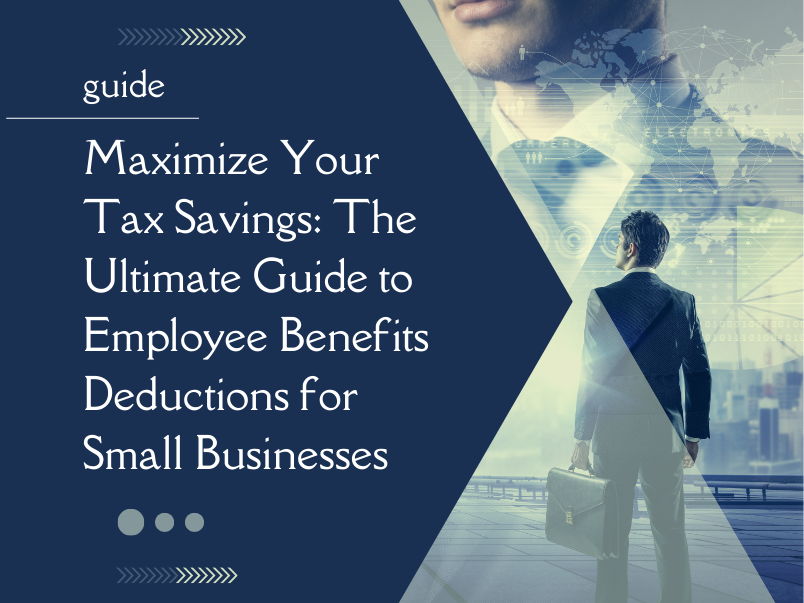Welcome to eConsultancy
Employee Benefits Tax Deductions: A Guide for Small Businesses
Employee benefits are a crucial part of attracting and retaining top talent for small businesses. Offering benefits not only helps employees feel valued but can also provide tax advantages for employers. Here’s a guide to understanding employee benefits tax deductions for small businesses.
- Health Insurance Premiums: Small businesses that provide health insurance to their employees may be eligible for a tax credit. The Small Business Health Care Tax Credit can cover up to 50% of the premiums paid by small business employers.
- Retirement Plans: Employers who offer retirement plans, such as a 401(k) or SIMPLE IRA, can benefit from tax deductions. Contributions to these plans are typically tax-deductible for the employer, providing a valuable tax advantage.
- Paid Time Off: Paid time off (PTO) is generally tax-deductible for employers. Offering PTO can help attract and retain employees while providing a tax benefit for the business.
- Disability Insurance: Premiums paid for disability insurance coverage for employees are usually tax-deductible for employers. This can help businesses provide important coverage for employees while reducing their tax liability.
- Life Insurance Premiums: In some cases, premiums paid for group life insurance coverage for employees can be tax-deductible for employers. This can be a valuable benefit for employees and a tax-efficient strategy for businesses.
- Education Assistance: Employers can provide tax-free education assistance to employees, up to certain limits. This can include payments for tuition, fees, books, and supplies, providing a valuable benefit for employees while reducing the employer’s tax burden.
- Dependent Care Assistance: Employers can provide tax-free dependent care assistance to employees, up to certain limits. This can include payments for daycare, preschool, and other dependent care expenses, providing a valuable benefit for employees with dependents.
- Transportation Benefits: Employers can provide tax-free transportation benefits to employees, up to certain limits. This can include parking, transit passes, and vanpooling expenses, providing a valuable benefit for employees while reducing the employer’s tax liability.
- Meals and Snacks: The cost of providing meals and snacks to employees can be tax-deductible for employers, up to certain limits. This can include meals provided at the workplace or during business travel, providing a valuable benefit for employees while reducing the employer’s tax liability.
- Employee Assistance Programs (EAPs): The cost of providing EAPs to employees can be tax-deductible for employers. EAPs can provide a range of services, including counseling, referrals, and other support services, providing a valuable benefit for employees while reducing the employer’s tax liability.
In conclusion, understanding the tax deductions available for employee benefits can help small businesses attract and retain top talent while maximizing tax savings. By offering a comprehensive benefits package and taking advantage of available tax deductions, small businesses can create a competitive advantage in the job market while maximizing their financial resources.

Leave a Reply